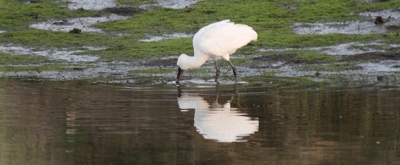Photo Competition
Flight will have space for three winners from each of three categories.
So take your camera where ever you go these coming months. We are looking for photos of ducks and other water birds. Or good scenic shots of the wetlands where they live.
Categories
- Categories are: (Three photos only in each category.)
Ducks
Other water birds
Wetlands
Photographer must be Under 16 years old.
Email to: This email address is being protected from spambots. You need JavaScript enabled to view it. or if you do not have email, send prints to:
Liz Brook, Brightnook Farm, RD9, 766, Beaconsfield Valley Rd, Feilding 4779.
Send photos before March 31. 2017.
There will be an independent judge, not a member of DUNZ.
PS – There are prizes – good ones. And one outstanding top prize that includes a stay at Blue Duck lodge.
Take part in our Photo Competition
The weather has not been helpful for photos but photographers are tough. They know to get the best shot they have to persevere and brave all weathers.
Water birds in NZ
An unusually high proportion of New Zealand’s native birds are wetland species – 30 percent, compared with less than 7 percent worldwide. This includes 15 species that have become extinct since humans first settled in New Zealand, around 1250–1300 AD.
Today some native wetland species are very rare, with less than 1,000 birds. New species have also become established, either by being deliberately introduced or arriving independently.
Loss of wetlands
Wetlands are areas of high biological productivity, and their fish and birds were important food for Māori. When Europeans arrived in New Zealand, freshwater wetlands covered around 672,000 hectares. But many areas have been drained for conversion to farmland or urban development – 87 percent have been lost since around 1800, and they now cover just 2 percent of New Zealand.
In some of the remaining wetlands, the water quality has declined. Eroded soil from disturbed land can build up in the water and choke aquatic organisms. Extra nutrients from fertiliser runoff can cause rapid algal growth, oxygen depletion and toxicity, which threaten the invertebrates, fish and plants that wetland birds depend on.
Restoring wetlands
Many community groups, regional bodies and landowners are re-creating or restoring wetlands on private and public land. Organisations such as Ducks Unlimited rear native ducks in captivity and release them at suitable sites, and populations of some wetland bird species are starting to increase. Go on line to check out Water birds in NZ. Or head to the local library to find a book and take home for a quiet read.
Take a camera when you go looking for native birds. Or possibly birds you think are not native, but that you have not seen
before. The photographic competition closes March 31.
Email to: This email address is being protected from spambots. You need JavaScript enabled to view it. or post to: Liz Brook, Brightnook Farm, RD9, 766, Beaconsfield Valley Rd, Feilding, 4779.

